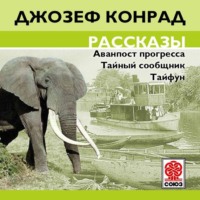
Полная версия
Amy Foster

Titel: Amy Foster
von Scott Hemphill, L. M. Montgomery, L. Frank Baum, John Milton, René Descartes, Baroness Emmuska Orczy Orczy, Karl Marx, Friedrich Engels, Edgar Rice Burroughs, Unknown, Norman F. Joly, Norman Coombs, David Slowinski, Mark Twain, Henry David Thoreau, Stephen Crane, John Goodwin, Nathaniel Hawthorne, Winn Schwartau, Odd De Presno, Sir Walter Scott, Jules Verne, Mary Wollstonecraft Shelley, United States. Central Intelligence Agency, United States, Canada, Willa Sibert Cather, Anthony Hope, Edwin Abbott Abbott, Charles Dickens, Frederick Douglass, William Shakespeare, Bruce Sterling, Franklin Delano Roosevelt, Jane Austen, Thomas Hardy, Sir Arthur Conan Doyle, Edna St. Vincent Millay, Gene Stratton-Porter, Richard McGowan, Frances Hodgson Burnett, United States. Bureau of the Census, Electronic Frontier Foundation, Robert Louis Stevenson, Anonymous, Jerry Bonnell, Robert Nemiroff, Andrew Lang, G. K. Chesterton, John Bunyan, Sunzi 6th cent. B.C., Harold Frederic, Mary Wollstonecraft, Victor Hugo, René Doumic, Upton Sinclair, Virginia Woolf, George Eliot, Thomas Paine, Benjamin Franklin, Plato, Samuel Taylor Coleridge, Ruth M. Sprague, William Dean Howells, Wilkie Collins, Jean Webster, H. G. Wells, Kate Chopin, Mark Eliot Laxer, Louisa May Alcott, Frank Norris, Edith Wharton, S. D. Humphrey, Henry Hunt Snelling, William Morris, Mrs. Susanna Rowson, Christopher Morley, Sax Rohmer, Oscar Wilde, Gaston Leroux, Henry James, Project Gutenberg, Harriet Beecher Stowe, Various, Robert W. Service, A. B. Paterson, Henry Lawson, Jack London, Laozi, D. H. Lawrence, Julius Caesar, Joseph Conrad, W. Somerset Maugham, George MacDonald, Marcus Tullius Cicero, Virgil, Theodore Dreiser, Giuseppe Salza, Rudyard Kipling, ca. 50 BCE-16 BCE Sextus Propertius, Robert A. Harris, William Wells Brown, graf Leo Tolstoy, Omar Khayyám, Michael Hart, Library of Congress. Copyright Office, Coalition for Networked Information, Geoffrey Chaucer, Adam Lindsay Gordon, Hiram Corson, Robert Browning, Amy Lowell, Rupert Brooke, Joyce Kilmer, John Gower, Saki, Kenneth Grahame, Anna Sewell, Martin Luther, Philipp Melanchthon, National Atomic Museum, Alexander William Kinglake, Charles John Cutcliffe Wright Hyne, Amelia Edith Huddleston Barr, James Branch Cabell, Bayard Taylor, Horatio Alger, Booth Tarkington, Hjalmar Hjorth Boyesen, Michael Husted, Émile Gaboriau, Jerome K. Jerome, Stephen Vincent Benét, Edwin Arlington Robinson, J. Frank Dobie, Joseph Rodman Drake, Eliot Gregory, John Fox, John Muir, Richard Harding Davis, Edgar A. Guest, Mary Roberts Rinehart, Thomas Nelson Page, Sir Walter Alexander Raleigh, Rebecca Harding Davis, Charles Alexander Eastman, Zitkala-Sa, Marie L. McLaughlin, J. M. Barrie, Bram Stoker, Hesiod, Edna Ferber, John McCrae, Anna Howard Shaw, Elizabeth Garver Jordan, Frances Jenkins Olcott, P.-J. Proudhon, Eleanor H. Porter, Mary Hunter Austin, Sarah Orne Jewett, Russell Herman Conwell, Daniel Defoe, Henry Benjamin Wheatley, Ambrose Bierce, Nettie Garmer Barker, Martí Joan de Galba, Joanot Martorell, Oliver Goldsmith, Zane Grey, Winston Churchill, Arthur Machen, L. Cranmer-Byng, Torquato Tasso, H. De Vere Stacpoole, Elizabeth Cleghorn Gaskell, Frank Richard Stockton, Rutherford Hayes Platt, Sara Teasdale, Samuel Smiles, W. E. B. Du Bois, Phillis Wheatley, Elbert Hubbard, Richard Jefferies, George Henry Borrow, Sherwood Anderson, Vachel Lindsay, David Graham Phillips, Harry Houdini, Eugene Field, Gustave Le Bon, Henry Brodribb Irving, William Healy, Mary Tenney Healy, Charles Godfrey Leland, Ralph Parlette, Don Marquis, Richard Le Gallienne, Stewart Edward White, Andrew Steinmetz, Madame de La Fayette, Abbé Prévost, Honoré de Balzac, Charles W. Chesnutt, Sara Cone Bryant, William Booth, James Nasmyth, Enrico Ferri, Joe Hutsko, Miriam Michelson, Oliver Optic, Victor MacClure, Calamity Jane, Gertrude Franklin Horn Atherton
ISBN 978-3-7429-0456-0
Alle Rechte vorbehalten.
Es ist ohne vorherige schriftliche Erlaubnis nicht gestattet, dieses Werk im Ganzen oder in Teilen zu vervielfältigen oder zu veröffentlichen.
AMY FOSTER
By Joseph Conrad
Kennedy is a country doctor, and lives in Colebrook, on the shores of Eastbay. The high ground rising abruptly behind the red roofs of the little town crowds the quaint High Street against the wall which defends it from the sea. Beyond the sea-wall there curves for miles in a vast and regular sweep the barren beach of shingle, with the village of Brenzett standing out darkly across the water, a spire in a clump of trees; and still further out the perpendicular column of a lighthouse, looking in the distance no bigger than a lead pencil, marks the vanishing-point of the land. The country at the back of Brenzett is low and flat, but the bay is fairly well sheltered from the seas, and occasionally a big ship, windbound or through stress of weather, makes use of the anchoring ground a mile and a half due north from you as you stand at the back door of the "Ship Inn" in Brenzett. A dilapidated windmill near by lifting its shattered arms from a mound no loftier than a rubbish heap, and a Martello tower squatting at the water's edge half a mile to the south of the Coastguard cottages, are familiar to the skippers of small craft. These are the official seamarks for the patch of trustworthy bottom represented on the Admiralty charts by an irregular oval of dots enclosing several figures six, with a tiny anchor engraved among them, and the legend "mud and shells" over all.
The brow of the upland overtops the square tower of the Colebrook Church. The slope is green and looped by a white road. Ascending along this road, you open a valley broad and shallow, a wide green trough of pastures and hedges merging inland into a vista of purple tints and flowing lines closing the view.
In this valley down to Brenzett and Colebrook and up to Darnford, the market town fourteen miles away, lies the practice of my friend Kennedy. He had begun life as surgeon in the Navy, and afterwards had been the companion of a famous traveller, in the days when there were continents with unexplored interiors. His papers on the fauna and flora made him known to scientific societies. And now he had come to a country practice—from choice. The penetrating power of his mind, acting like a corrosive fluid, had destroyed his ambition, I fancy. His intelligence is of a scientific order, of an investigating habit, and of that unappeasable curiosity which believes that there is a particle of a general truth in every mystery.
A good many years ago now, on my return from abroad, he invited me to stay with him. I came readily enough, and as he could not neglect his patients to keep me company, he took me on his rounds—thirty miles or so of an afternoon, sometimes. I waited for him on the roads; the horse reached after the leafy twigs, and, sitting in the dogcart, I could hear Kennedy's laugh through the half-open door left open of some cottage. He had a big, hearty laugh that would have fitted a man twice his size, a brisk manner, a bronzed face, and a pair of grey, profoundly attentive eyes. He had the talent of making people talk to him freely, and an inexhaustible patience in listening to their tales.
One day, as we trotted out of a large village into a shady bit of road, I saw on our left hand a low, black cottage, with diamond panes in the windows, a creeper on the end wall, a roof of shingle, and some roses climbing on the rickety trellis-work of the tiny porch. Kennedy pulled up to a walk. A woman, in full sunlight, was throwing a dripping blanket over a line stretched between two old apple-trees. And as the bobtailed, long-necked chestnut, trying to get his head, jerked the left hand, covered by a thick dog-skin glove, the doctor raised his voice over the hedge: "How's your child, Amy?"
I had the time to see her dull face, red, not with a mantling blush, but as if her flat cheeks had been vigorously slapped, and to take in the squat figure, the scanty, dusty brown hair drawn into a tight knot at the back of the head. She looked quite young. With a distinct catch in her breath, her voice sounded low and timid.
"He's well, thank you."
We trotted again. "A young patient of yours," I said; and the doctor, flicking the chestnut absently, muttered, "Her husband used to be."
"She seems a dull creature," I remarked listlessly.
"Precisely," said Kennedy. "She is very passive. It's enough to look at the red hands hanging at the end of those short arms, at those slow, prominent brown eyes, to know the inertness of her mind—an inertness that one would think made it everlastingly safe from all the surprises of imagination. And yet which of us is safe? At any rate, such as you see her, she had enough imagination to fall in love. She's the daughter of one Isaac Foster, who from a small farmer has sunk into a shepherd; the beginning of his misfortunes dating from his runaway marriage with the cook of his widowed father—a well-to-do, apoplectic grazier, who passionately struck his name off his will, and had been heard to utter threats against his life. But this old affair, scandalous enough to serve as a motive for a Greek tragedy, arose from the similarity of their characters. There are other tragedies, less scandalous and of a subtler poignancy, arising from irreconcilable differences and from that fear of the Incomprehensible that hangs over all our heads—over all our heads...."
The tired chestnut dropped into a walk; and the rim of the sun, all red in a speckless sky, touched familiarly the smooth top of a ploughed rise near the road as I had seen it times innumerable touch the distant horizon of the sea. The uniform brownness of the harrowed field glowed with a rosy tinge, as though the powdered clods had sweated out in minute pearls of blood the toil of uncounted ploughmen. From the edge of a copse a waggon with two horses was rolling gently along the ridge. Raised above our heads upon the sky-line, it loomed up against the red sun, triumphantly big, enormous, like a chariot of giants drawn by two slow-stepping steeds of legendary proportions. And the clumsy figure of the man plodding at the head of the leading horse projected itself on the background of the Infinite with a heroic uncouthness. The end of his carter's whip quivered high up in the blue. Kennedy discoursed.
"She's the eldest of a large family. At the age of fifteen they put her out to service at the New Barns Farm. I attended Mrs. Smith, the tenant's wife, and saw that girl there for the first time. Mrs. Smith, a genteel person with a sharp nose, made her put on a black dress every afternoon. I don't know what induced me to notice her at all. There are faces that call your attention by a curious want of definiteness in their whole aspect, as, walking in a mist, you peer attentively at a vague shape which, after all, may be nothing more curious or strange than a signpost. The only peculiarity I perceived in her was a slight hesitation in her utterance, a sort of preliminary stammer which passes away with the first word. When sharply spoken to, she was apt to lose her head at once; but her heart was of the kindest. She had never been heard to express a dislike for a single human being, and she was tender to every living creature. She was devoted to Mrs. Smith, to Mr. Smith, to their dogs, cats, canaries; and as to Mrs. Smith's grey parrot, its peculiarities exercised upon her a positive fascination. Nevertheless, when that outlandish bird, attacked by the cat, shrieked for help in human accents, she ran out into the yard stopping her ears, and did not prevent the crime. For Mrs. Smith this was another evidence of her stupidity; on the other hand, her want of charm, in view of Smith's well-known frivolousness, was a great recommendation. Her short-sighted eyes would swim with pity for a poor mouse in a trap, and she had been seen once by some boys on her knees in the wet grass helping a toad in difficulties. If it's true, as some German fellow has said, that without phosphorus there is no thought, it is still more true that there is no kindness of heart without a certain amount of imagination. She had some. She had even more than is necessary to understand suffering and to be moved by pity. She fell in love under circumstances that leave no room for doubt in the matter; for you need imagination to form a notion of beauty at all, and still more to discover your ideal in an unfamiliar shape.
"How this aptitude came to her, what it did feed upon, is an inscrutable mystery. She was born in the village, and had never been further away from it than Colebrook or perhaps Darnford. She lived for four years with the Smiths. New Barns is an isolated farmhouse a mile away from the road, and she was content to look day after day at the same fields, hollows, rises; at the trees and the hedgerows; at the faces of the four men about the farm, always the same—day after day, month after month, year after year. She never showed a desire for conversation, and, as it seemed to me, she did not know how to smile. Sometimes of a fine Sunday afternoon she would put on her best dress, a pair of stout boots, a large grey hat trimmed with a black feather (I've seen her in that finery), seize an absurdly slender parasol, climb over two stiles, tramp over three fields and along two hundred yards of road—never further. There stood Foster's cottage. She would help her mother to give their tea to the younger children, wash up the crockery, kiss the little ones, and go back to the farm. That was all. All the rest, all the change, all the relaxation. She never seemed to wish for anything more. And then she fell in love. She fell in love silently, obstinately—perhaps helplessly. It came slowly, but when it came it worked like a powerful spell; it was love as the Ancients understood it: an irresistible and fateful impulse—a possession! Yes, it was in her to become haunted and possessed by a face, by a presence, fatally, as though she had been a pagan worshipper of form under a joyous sky—and to be awakened at last from that mysterious forgetfulness of self, from that enchantment, from that transport, by a fear resembling the unaccountable terror of a brute...."
With the sun hanging low on its western limit, the expanse of the grass-lands framed in the counter-scarps of the rising ground took on a gorgeous and sombre aspect. A sense of penetrating sadness, like that inspired by a grave strain of music, disengaged itself from the silence of the fields. The men we met walked past slow, unsmiling, with downcast eyes, as if the melancholy of an over-burdened earth had weighted their feet, bowed their shoulders, borne down their glances.
"Yes," said the doctor to my remark, "one would think the earth is under a curse, since of all her children these that cling to her the closest are uncouth in body and as leaden of gait as if their very hearts were loaded with chains. But here on this same road you might have seen amongst these heavy men a being lithe, supple, and long-limbed, straight like a pine with something striving upwards in his appearance as though the heart within him had been buoyant. Perhaps it was only the force of the contrast, but when he was passing one of these villagers here, the soles of his feet did not seem to me to touch the dust of the road. He vaulted over the stiles, paced these slopes with a long elastic stride that made him noticeable at a great distance, and had lustrous black eyes. He was so different from the mankind around that, with his freedom of movement, his soft—a little startled, glance, his olive complexion and graceful bearing, his humanity suggested to me the nature of a woodland creature. He came from there."
The doctor pointed with his whip, and from the summit of the descent seen over the rolling tops of the trees in a park by the side of the road, appeared the level sea far below us, like the floor of an immense edifice inlaid with bands of dark ripple, with still trails of glitter, ending in a belt of glassy water at the foot of the sky. The light blur of smoke, from an invisible steamer, faded on the great clearness of the horizon like the mist of a breath on a mirror; and, inshore, the white sails of a coaster, with the appearance of disentangling themselves slowly from under the branches, floated clear of the foliage of the trees.
"Shipwrecked in the bay?" I said.
Конец ознакомительного фрагмента.
Текст предоставлен ООО «ЛитРес».
Прочитайте эту книгу целиком, купив полную легальную версию на ЛитРес.
Безопасно оплатить книгу можно банковской картой Visa, MasterCard, Maestro, со счета мобильного телефона, с платежного терминала, в салоне МТС или Связной, через PayPal, WebMoney, Яндекс.Деньги, QIWI Кошелек, бонусными картами или другим удобным Вам способом.









